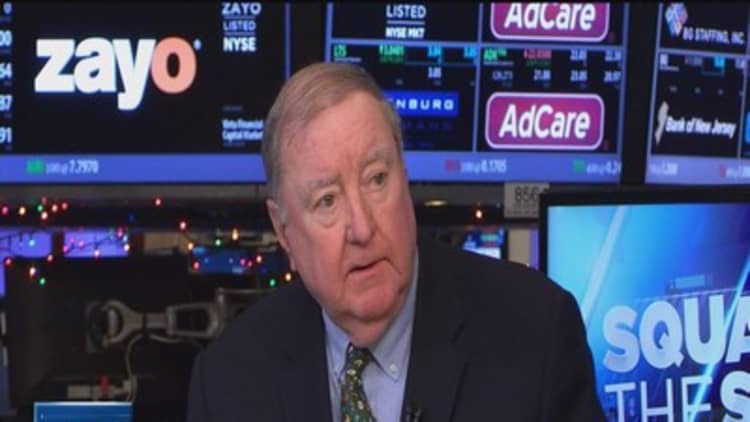
The Federal Reserve's decision to raise interest rates had little to do with the state of the economy, UBS' Art Cashin said Thursday.
"They painted themselves into a corner, and they had to do it," Cashin told CNBC's "Squawk on the Street." "The reason they did it was not because of the economy but because they talked themselves into doing it."
The central bank's decision to raise interest rates by 25 basis points marked the Fed's first rate hike in 9½ years.
While U.S. equities managed to close sharply higher following the decision, other asset classes had more muted reactions, Cashin noted. On Thursday, however, "you're seeing many of the reactions you would've expected. The dollar is strong; gold is getting pasted," said Cashin, director of NYSE floor operations for UBS.
The dollar gained over 1 percent against a basket of currencies in afternoon trading, while spot gold prices fell about 2 percent.
U.S. stocks fell sharply Thursday, with the Dow Jones industrial average shedding about 190 points at its session lows.
"The reason why the unease is coming today is because the dollar is strengthening; that is not good for oil prices, that is not good for credit spreads, and so goes the contagion effect," Anastasia Amoroso, global market strategist at JPMorgan Funds, told CNBC's "Fast Money: Halftime Report."
"I do think that, once we start getting the economic data, post the Fed, … the data will solidify and the market will start to stabilize, but this unease is not unexpected,' she said.





